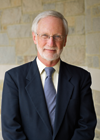|
|
|
This web seminar is based on the content of the Summer 2014 issue of Generations, “The Future of Aging Services,” guest edited by Robert A. Applebaum. Click here to learn more, read select articles on AgeBlog and for subscription options.  |
Part of the Generations Education Series Sponsored by the Archstone Foundation
Register Now
Includes Complimentary CEUs
After examining the rationale for, and current state of, participant direction efforts across the country, this seminar will look at factors such as changing demographics due to the aging of the baby boomers, the increasing diversity of America’s older adults and key provisions in the Affordable Care Act. It will examine how these factors might affect the commitment to and development of participant direction options. This web seminar will also discuss reasons for pessimism and reasons for hope regarding the central role participant direction will play in the future of aging services. It will examine philosophical biases, systems constraints and possible impacts of the expansion of Fair Labor Standards Act protections for homecare aides, and the growth of managed long-term services and supports. The session will conclude with ideas for sharing best practices, developing quality measures and a standardized way to collect program information on participant direction, as well as thoughts for a model training curriculum.
Participants in this web seminar will be able to:
- Describe the basic components of a participant-directed service model;
- Describe how and why participant direction is an evidence-based practice;
- Identify at least four factors influencing the growth of participant direction;
- List at least two reasons for pessimism and two reasons for hope regarding the role participant direction will play in the future of aging services; and,
- Discuss measures that might be helpful in improving the quality and enhancing the reach of participant-directed options.
Presenters:
 |
Professor Kevin J. Mahoney, who joined the Boston College Graduate School of Social Work faculty in 1999, is known for his research on participant direction of home- and community-based services and supports for people with disabilities, and financing of long-term care. Mahoney serves as director of the National Resource Center for Participant-Directed Services, which has been housed at Boston College since its inception in 2009. |
 |
Dr. Robyn Stone, a noted researcher and leading international authority on aging and long-term care policy, joined LeadingAge to establish and oversee the LeadingAge Center for Applied Research. Stone came to LeadingAge from the International Longevity Center-USA in New York, NY, where she was executive director and chief operating officer. Previously, she worked for the Federal Agency for Health Care Policy and Research (now known as the Agency for Health care Research and Quality). Stone also served as Deputy Assistant Secretary for Disability, Aging and Long-Term Care Policy, and as Acting Assistant Secretary for aging in the U.S. Department of Health and Human Services during the Clinton administration. |


